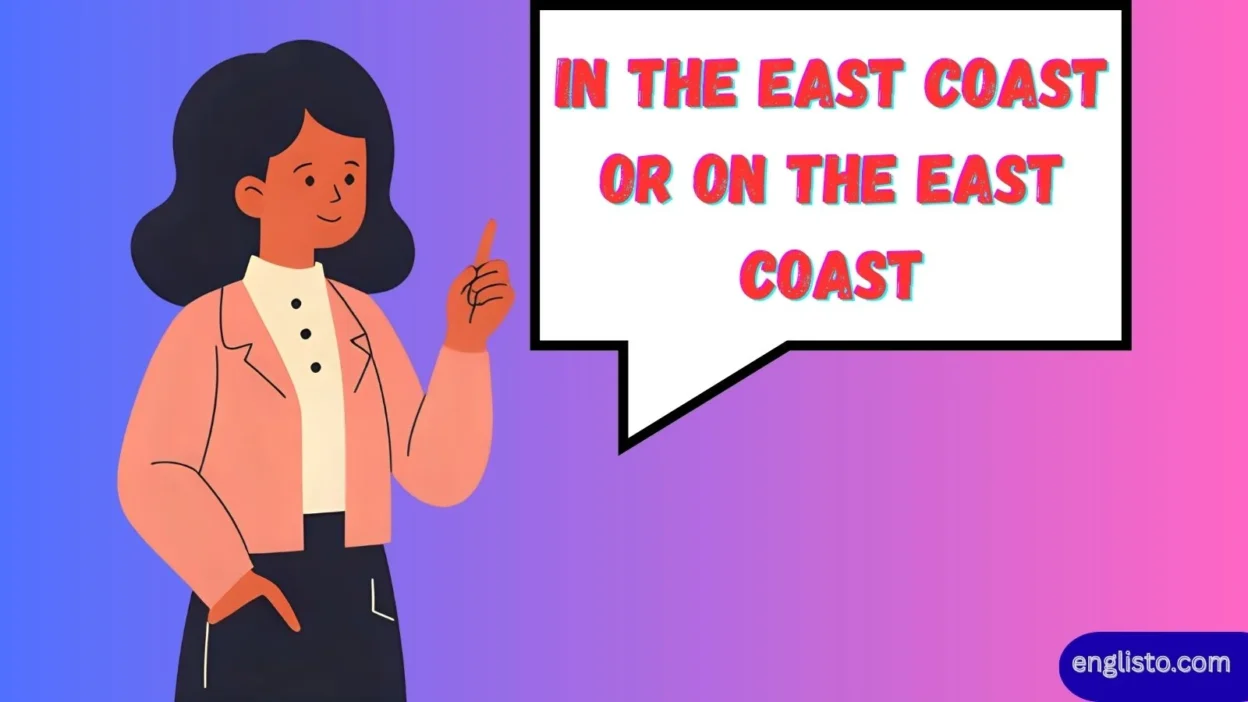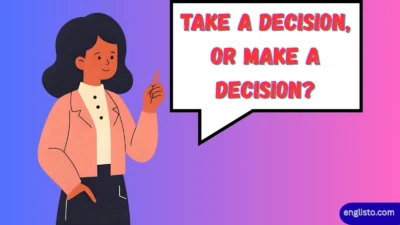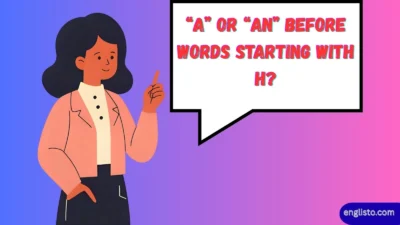When it comes to English prepositions, few things trip people up more than deciding whether to say “In The East Coast or On The East Coast” It looks like a small detail, but this subtle choice can make your writing sound either natural or awkward to native speakers.
If you’ve ever typed this into Google, you’re not alone—millions of people have searched for the same answer. The confusion lies in how we think about geography, regions, and prepositional grammar. Should the East Coast be treated as a location you’re “in” or as an edge of land you’re “on”?
This article breaks down the difference with real-life examples, tables, regional usage notes, and grammar explanations. By the end, you’ll know exactly which form to use, why it matters, and how to avoid the common mistake that even lifelong English speakers sometimes make.
What Does “The East Coast” Mean?
Before we can choose the right preposition, we need to define what “the East Coast” actually is.
- Geographically: The East Coast refers to the stretch of land along the Atlantic Ocean in the United States and parts of Canada.
- Culturally: People often use it to describe a region with shared history, accents, and traditions—think New York, Boston, Washington D.C., and Miami.
- Colloquially: It can mean “where I grew up,” “where I went to college,” or simply “that side of the country.”
👉 The East Coast isn’t just a direction (east); it’s a defined area bordering the sea. That distinction is crucial for grammar.
Read More: Big, Large, Huge, Enormous & Giant: Understanding Their Nuances and Usage
“In” vs. “On” in Grammar
English prepositions have subtle but consistent rules. Here’s the logic:
| Preposition | General Meaning | Example | Why It Matters Here |
| In | Inside, enclosed, part of a larger area or container | “She lives in New York.” | Use when referring to a city, state, or enclosed region. |
| On | On the surface, edge, or border of something | “The farm is on the lake.” | Use when referring to the edge of land bordering water. |
So, if you think of the East Coast as a landmass/region, you’d naturally say in the East Coast.
But if you think of it as the borderline where land meets the sea, you’d say on the East Coast.
The Correct Choice: “On the East Coast”
Here’s the definitive answer:
✅ The correct and most common form is “on the East Coast.”
Why? Because the East Coast is not an enclosed container—it’s the edge of a country bordering the Atlantic Ocean. Prepositions like “on” are used for surfaces, edges, and borders.
- “He grew up on the East Coast.”
- “Our office is based on the East Coast.”
- “Many popular restaurants are located on the East Coast.”
Native speakers almost never say “in the East Coast,” because it sounds like the East Coast is inside something, which isn’t logical.
Why People Get Confused
The confusion comes from the way we treat similar phrases:
| Phrase | Common Preposition | Why |
| In New York | In | City = enclosed region |
| In the Midwest | In | Region surrounded by land |
| On the East Coast | On | Edge/border along ocean |
| On the West Coast | On | Edge/border along ocean |
| In the South | In | Broad regional area, not an edge |
👉 Notice the pattern: regions enclosed by land = “in” vs. coastal borders = “on.”
Real-Life Usage and Examples
Let’s look at authentic examples from daily conversation and writing:
- Travel:
- “We spent our summer vacation on the East Coast exploring historical cities.”
- “I prefer beaches on the East Coast over the West Coast.”
- “We spent our summer vacation on the East Coast exploring historical cities.”
- Business:
- “Our company has clients on the East Coast and the Midwest.”
- “There’s more tech growth on the West Coast than on the East Coast.”
- “Our company has clients on the East Coast and the Midwest.”
- Personal:
- “I grew up on the East Coast and moved west a few years ago.”
- “My family visited relatives on the East Coast last winter.”
- “I grew up on the East Coast and moved west a few years ago.”
Notice how each sentence naturally fits with “on.” If you try swapping in “in,” it feels awkward:
❌ “I grew up in the East Coast.” (Unnatural)
What About “In the East”?
This is where things get subtle.
- “In the East” is correct when referring to a general direction or vague region.
- “Trade flourished in the East centuries ago.”
- “The sun rises in the East.”
- “Trade flourished in the East centuries ago.”
- “On the East Coast” is correct when referring to the specific region bordering the Atlantic Ocean.
So, “East” and “East Coast” are not interchangeable.
Regional Variations and Statistics
A quick look at Google Ngram Viewer and corpus statistics shows:
- “On the East Coast” is far more common in both American and British English.
- “In the East Coast” appears only rarely, often in non-native writing or mistaken usage.
| Phrase | Frequency (approx.) | Notes |
| On the East Coast | Millions of hits | Standard, accepted |
| In the East Coast | Very few | Viewed as incorrect |
Even dictionaries like Oxford and Merriam-Webster support this preference, citing examples with “on.”
Common Mistakes and Misconceptions
- ❌ Saying “in the East Coast” when referring to the U.S. Atlantic region.
- ❌ Assuming all regions take “in” (they don’t).
- ❌ Confusing “in the East” (direction) with “on the East Coast” (geographical region).
Practical Grammar Rule
Here’s a quick rule of thumb you can always rely on:
- Use “in” for regions enclosed by land → “in the Midwest,” “in the South.”
- Use “on” for coastal borders or surfaces → “on the East Coast,” “on the West Coast.”
Think of it like this:
- Inside = in
- Edge/surface = on
Extra Examples for Clarity
| Correct Usage | Incorrect Usage |
| I studied on the East Coast for three years. | I studied in the East Coast for three years. |
| Many cities on the East Coast are historic. | Many cities in the East Coast are historic. |
| Hurricanes often hit towns on the East Coast. | Hurricanes often hit towns in the East Coast. |
Why It Matters
Some might argue: “But people will still understand me, right?”
Yes—but clarity, correctness, and credibility matter.
- In academic writing, “in the East Coast” will be marked as wrong.
- In business communication, using the wrong preposition can make your writing look non-native.
- In casual speech, it may simply sound off to native ears.
Synonyms and Variations
Sometimes, you can avoid the preposition dilemma by rephrasing:
- Instead of “on the East Coast,” you can say:
- “Along the East Coast”
- “Across the East Coast”
- “Throughout the East Coast”
- “Along the East Coast”
Each has a slightly different nuance, but all are grammatically correct.
Quick Comparison: East vs. West Coast
| Expression | East Coast | West Coast |
| Correct Preposition | On | On |
| Example | “She works on the East Coast.” | “He studied on the West Coast.” |
| Wrong Form | In the East Coast | In the West Coast |
| Note | Same rule applies | Same logic—coastal edge |
Idioms and Colloquial Expressions
Native speakers often use the phrase “on the East Coast” in casual idioms:
- “Life on the East Coast is fast-paced.”
- “Surfing’s better on the West Coast than on the East Coast.”
- “Houses on the East Coast are older than those out west.”
FAQs
Q1: Is “in the East Coast” ever correct?
A: Rarely. Some non-native speakers use it, but it’s not considered correct in standard English.
Q2: Why do we say “in the Midwest” but “on the East Coast”?
A: The Midwest is an enclosed land region, while the East Coast is an edge along the ocean.
Q3: Do British speakers use “on the East Coast” too?
A: Yes. Both British and American English prefer “on.”
Q4: Can I say “at the East Coast”?
A: “At” can work in very specific contexts, like “We arrived at the East Coast after traveling for months,” but it’s uncommon.
Q5: Is this rule the same for the West Coast?
A: Absolutely. Always say “on the West Coast,” never “in the West Coast.”
Conclusion
So, should you say “in the East Coast” or “on the East Coast”?
The answer is clear:
✅ Always use “on the East Coast.”
It matches the geographical logic, follows English prepositional rules, and is the form accepted by native speakers, dictionaries, and academic writing.
Think of the East Coast as a borderline, not a container. Once you frame it that way, you’ll never second-guess yourself again.
👉 Rule of thumb: In = enclosed areas. On = edges and surfaces.
With this, you’re not only grammatically correct but also sound natural, fluent, and confident in your English usage.



